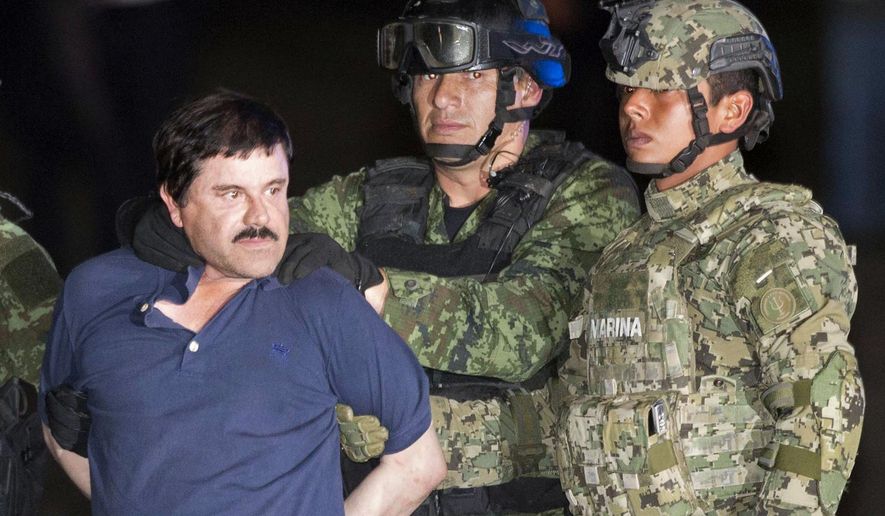BOGOTA, Colombia (AP) - Representatives from over a dozen nations that are signatories to a Cold War-era defense treaty for the Americas moved Tuesday to further isolate close allies of Venezuelan President Nicolás Maduro with targeted sanctions.
The 1947 Rio Treaty signatories vowed to cooperate in pursuing economic sanctions and travel restrictions for Maduro government associates accused of corruption, drug trafficking, money laundering or human rights violations.
“The political, economic and social crisis in the Bolivarian Republic of Venezuela represents a threat for the peace and security of the continent,” Colombian Foreign Minister Claudia Blum said in the meeting’s final remarks.
While the United States and the European Union have targeted Maduro associates with economic sanctions, Latin American nations who are supporting opposition leader Juan Guaidó have largely resorted to diplomatic pressure.
The promise of enhanced economic pressure against Maduro comes at a time when Venezuela’s opposition is faltering. Guaidó has struggled to mobilize supporters onto the streets and dipped in popularity. Meanwhile, fissures within the opposition are coming to light amidst recent controversies involving alleged abuses of power.
David Smilde, a senior fellow at the Washington Office on Latin America, said the Rio Treaty’s resolution Tuesday marks a “small victory” for the opposition but “not enough to really put them in a different place.”
“Their strategy of maximum pressure seems to be stalling,” he said.
Those identified for targeted sanctions by Rio Treaty member nations include: Diosdado Cabello, head of the all-powerful National Constitutional Assembly; Judge Maikel Moreno, chief of the government-stacked Supreme Court; media magnate Raúl Gorrín; and Alex Saab, an obscure Colombian businessman who came onto the radar of U.S. authorities after amassing a large number of contracts from the Maduro government.
Carlos Vecchio, who represents Guaidó in Washington, said that list of over two dozen individuals is a “first step” and that the opposition will be pressuring for more names to be added to the sanctions list in the months ahead.
“The important thing is for international pressure to remain,” he said.
Rio Treaty nations have been treading cautiously in pursuing economic restrictions against Venezuela while vowing not to invoke a provision in the accord that authorizes them to pursue a military intervention. The accord instructs all 19 signatories to consider a threat against any one of them a danger to all.
Colombian President Iván Duque maintains that Maduro is offering a safe haven to rebel factions of the National Liberation Army and dissidents with the former Revolutionary Armed Forces of Colombia, an assertion the Venezuelan leader denies. But he repeated previous remarks urging a diplomatic response rather than a military resolution to Venezuela’s political and economic turmoil.
“Here there’s no invitation for use of force,” Duque said.
Venezuela’s tumult is having increasingly geopolitical ramifications as nearly 6 million flee, putting stress on neighboring countries, and powerful Maduro allies like Russia and Chine step in to support the socialist government.
Secretary of State Mike Pompeo said Monday that all options remain on the table but described U.S. strategy toward Venezuela as one “mixed with restraint” that would continue to focus on economic penalties.
“We’ve learned from history that the risks from using military force are significant,” he said.
Venezuelan leaders nonetheless point to the Rio Treaty’s invocation as a sign that adversaries plan to invade.
“The people should be prepared and alert on the streets,” Diosdado Cabello, head of Venezuela’s all-powerful National Constitutional Assembly, said Tuesday.
Maduro also blasted the Rio Treaty event, saying it constitutes little more than a distraction for Duque, who is currently grappling with a wave of anti-government protests that have drawn thousands of Colombians to the streets.
“It’s a meeting of puppets, of clowns,” Maduro said.
It remains unclear how quickly any individual Rio Treaty nation will move to freeze bank accounts and enforce other restrictions – though nations recognizing Guaidó as interim president hailed it as an important step.
“If they can’t take their money to the United States, to Europe, and now, they can’t take it to Central America, they can’t take it to South America, they can’t travel to those places, it starts to really limit their options,” said Michael Kozak, the acting head of U.S. diplomacy toward Latin America.
Kozak described recent revelations published by investigative news website Armando.info asserting that a group of opposition legislators had recently written letters in support of businessmen associated with the Maduro government to authorities in the U.S. and Colombia as “disturbing.” But he said the U.S. was satisfied with Guaidó’s response in initiating an investigation against the alleged misconduct.
“It does not undermine our confidence in the National Assembly,” he said. “It shows why we have confidence in the National Assembly.”
_
Associated Press writer Jorge Rueda contributed to this report from Caracas, Venezuela.




Please read our comment policy before commenting.